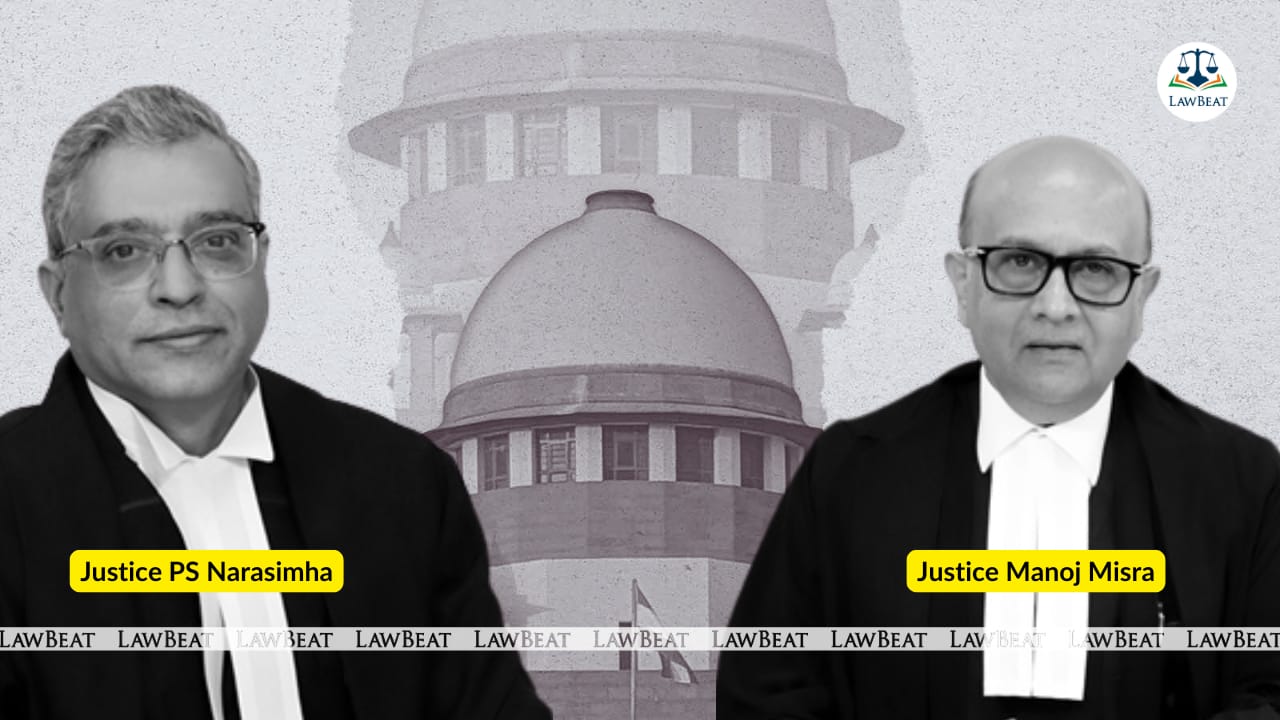Graft Conviction Can't Be Set Aside for Sanction Irregularity Unless Failure of Justice Occasioned: SC

Court noted apart from the clear statutory prescription of Section 19 of the Act, the high court had also lost sight of Section 465 of the Criminal Procedure Code, 1973
The Supreme Court has emphasised that the conviction and sentence in a graft case against a public servant can't be set aside on the ground of irregularity in sanction, unless it has been proved that it had resulted in failure of justice.
A bench of Justices P S Narasimha and Manoj Misra pointed out the first principle, that under sub-section 3(a) of Section 19 of the Act, no finding, sentence or order by a Special Judge would be reversed by a court of appeal on the ground of absence, error, omission or irregularity in the sanction.
"However, such a restraint against reversal or alteration is always subject to the opinion of the court that failure of justice has in fact been occasioned thereby. Sub-section (4) of Section 19 of the Act further provides that while construing whether the absence, error, omission or irregularity has occasioned or resulted in failure of justice, the court will examine the fact that whether an objection could and should have been raised at an earlier stage in the proceedings," the bench said.
The court referred to CBI Vs Ashok Kumar Aggarwal (2014), which held that the failure of justice would be relatable to error, omission or irregularity in the grant of sanction. However, a mere error, omission or irregularity in sanction is not considered to be fatal unless it has resulted in the failure of justice or has been occasioned thereby.
"The meaning behind the text of the phrase ‘failure of justice’ must be understood in the context of the object behind the larger public policy on sanction for prosecution," the bench said.
The inter-relationship or the nexus between the act complained of and the discharge of official duties and the test to be applied has been explained in the decision of the top court in State of Bihar Vs Rajmangal Ram (2014), the bench pointed out.
In the matter in hand, court set aside a Punjab and Haryana High Court's order which allowed an appeal against conviction and sentence of a man namely Jagat Ram under the Prevention of Corruption Act on the ground that the officer who granted sanction for prosecution was not examined during the trial.
The bench allowed the CBI's appeal against the high court's judgment which set aside the conviction and sentence of two years awarded to respondent Jagat Ram in a case of demanding and collecting bride.
The high court had found that the prosecution established the demand and acceptance, and the defense failed to rebut the evidence. However, regarding the issue of sanction, it had noted that the prosecution had "not examined any official who had actually applied his/her mind and granted the sanction," leading to the acquittal of the present appellant.
After hearing the counsel for the parties, the bench said, "Apart from the clear statutory prescription of Section 19 of the Act, as informed by relevant court precedents, the high court has also lost sight of Section 465 of the Criminal Procedure Code, 1973, which provides that a sentence or an order passed by the court of competent jurisdiction shall not be reversed or altered by a court of appeal, confirmation or revision on account of any error or irregularity in any sanction for the prosecution unless in the opinion of the court, a failure of justice has in fact been occasioned thereby".
It further pointed out that the substantial principle of requiring a sanction for prosecution and at the same time the principle in not negating the sentence or order of a court of competent jurisdiction are both incorporated in the Prevention of Corruption Act and the Criminal Procedure Code.
The court balances these values by the measure of whether failure of justice has in fact been occasioned, it said.
"Really speaking, nothing remains for us to consider if absence, omission, error or irregularity of the sanction order has occasioned or resulted in failure of justice as the high court came to the conclusion that findings of fact of the Trial Court, are based on evidence. The high court also held that ‘the prosecution proved the demand and acceptance. The defence failed to rebut the prosecution evidence. Presumption arises under Section 20 of the Act regarding acceptance of money’," the bench noted.
The counsel for the respondent submitted that one more opportunity could be given to the respondent to demonstrate that ‘irregularity in the sanction order had led to failure of justice’.
"It appears that the high court has taken up the issue of sanction,rather than the proof of sanction on its own and without the assistance of the counsel for the respondent-accused. In the circumstances and in the interest of justice, even if it is a formality we consider it appropriate to permit the respondent to raise and contest this issue of failure of justice due to irregularity in sanction before the high court," the bench said.
The court allowed the CBI's appeal against the high court's judgment to the extent that it set aside the sanction and the consequent acquittal.
"While we confirm the other findings, we remand the matter to the high court for considering the question of legality of the order of sanction under Section 19 of the Act to consider if the irregularity, if any, has occasioned or resulted in a failure of justice," the bench held.
Case Title: Central Bureau of Investigation Vs Jagat Ram
